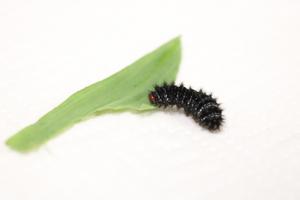Silent Killers in the Field: How Pesticides Are Poisoning Our Planet

Groundbreaking Research Reveals Complex Impact of Pesticides on Ecosystem Diversity
Researchers from the University of Helsinki have uncovered compelling evidence highlighting the nuanced environmental consequences of pesticide use. Their comprehensive study exposes how these agricultural chemicals can significantly disrupt the delicate balance of non-target species inhabiting farming landscapes.
The research team discovered that pesticide impacts are far from uniform, with different substances producing dramatically varied effects on local ecosystems. This finding underscores the complexity of agricultural chemical interactions and challenges simplistic assumptions about their environmental consequences.
By meticulously examining multiple pesticide formulations, scientists demonstrated that the potential ecological disruption is not a one-size-fits-all phenomenon. Some chemicals showed minimal impact, while others triggered substantial disturbances in the populations of non-target organisms.
These insights provide critical guidance for agricultural practices, emphasizing the need for more targeted and environmentally conscious pest management strategies that minimize unintended ecological consequences.
